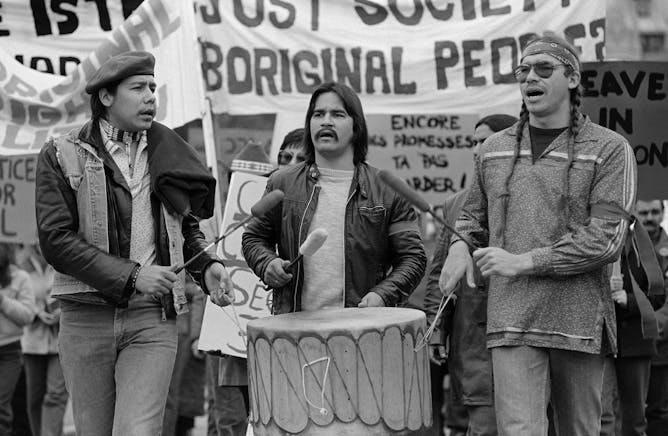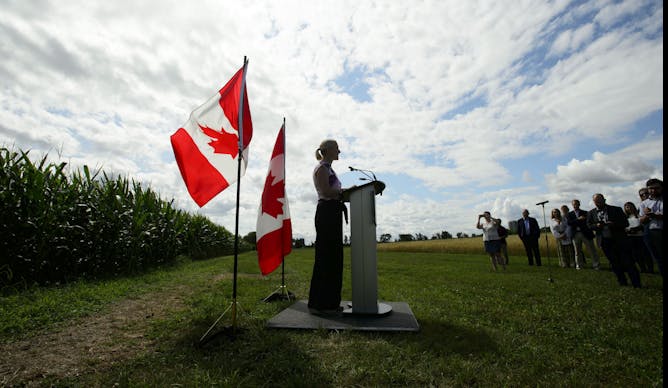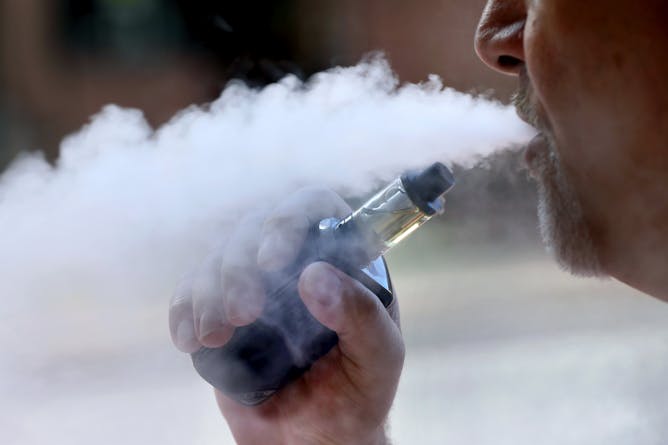|
The Truth and Reconciliation Commission released its 94 Calls to Action almost four years ago. Today in The Conversation Canada, we launch the first of what will be an ongoing series – overseen by our Culture and Society and Critical Race Editor Vinita Srivastava – on where we are as a society when it comes to implementing the Calls to Action.
Our kickoff essay for this series is written by Sheryl Lightfoot of the University of British Columbia. Prof. Lightfoot is the Canada Research Chair in Global Indigenous Rights and Politics. She points out today is the 12th anniversary of United Nations Declaration on the Rights of Indigenous Peoples, which Canada has yet to sign. Prof. Lightfoot notes the TRC’s call No. 43 – which urges all governments in Canada to adopt the declaration – is “the framework” for all reconciliation.
Elsewhere today:
And finally, we’re into Day 3 of the election and one topic that’s already come up is the harassment that female candidates – regardless of their party – face on social media. Tracey Raney and Mackenzie Gregory of Ryerson University note that female politicians who support climate action have especially been singled out.
Regards,
|

Apologies without clear policy shift are typically rejected as ‘empty gestures.’ Here, more than 100 Indigenous people march on Parliament Hill in 1981 to protest the elimination of Aboriginal rights in the proposed Canadian Constitution.
The Canadian Press/Carl Bigras
Sheryl Lightfoot, University of British Columbia
It's the 12th anniversary of the UN Declaration on the Rights of Indigenous Peoples. Canada has yet to sign this declaration even though the TRC says the road to reconciliation needs to start here.
|

Ho Chi Minh City, Vietnam, is one of many emerging global metropolises that are struggling to protect residents against tobacco.
(Shutterstock)
Steven J. Hoffman, York University, Canada; Mathieu Poirier, York University, Canada
Rapidly growing metropolises like Beijing, Jakarta and Ho Chi Minh City are struggling to protect residents against tobacco. Life-saving policies in rich countries may be partially to blame.
|

Global university rankings implicitly reproduce the belief that wealthy, inequitable institutions should be replicated.
(Shutterstock)
Michelle Stack, University of British Columbia
There's a lot to learn from institutions created to provide space for the many excluded from elite schools, including Indigenous-focused institutions that have graduated community-engaged leaders.
|

Plastics straws are now hard to find. Are plastic bags next?
AP Photo/Wilfredo Lee
Tony Robert Walker, Dalhousie University
Governments need better information on which types of plastic generate the most pollution — citizens can help.
|

Canadian Environment Minister Catherine McKenna has had to hire security due to sexist vitriol aimed at her in public.
THE CANADIAN PRESS/Sean Kilpatrick
Tracey Raney, Ryerson University; Mackenzie Gregory, Ryerson University
Understanding the sexist and misogynistic terrain women climate leaders must navigate is an important requirement of an informed electorate as Canada heads to the polls next month.
|

file er msm.
Robert F. Bukaty/AP Photo
Ilona Jaspers, University of North Carolina at Chapel Hill
Il a fallu des décennies aux épidémiologistes pour découvrir que l'inhalation de la fumée provenant du tabac causait le cancer du poumon. Ils semblent aujourd'hui ignorants des dangers du vapotage.
|
Business + Economy
|
-
Tim Schweisfurth, University of Southern Denmark
Our understanding of where new and exciting ideas come from in the business world is backwards.
|
|
Arts
|
-
Susan Watkins, Leeds Beckett University
The author has returned to Gilead, 35 years after the original novel was published.
|
|